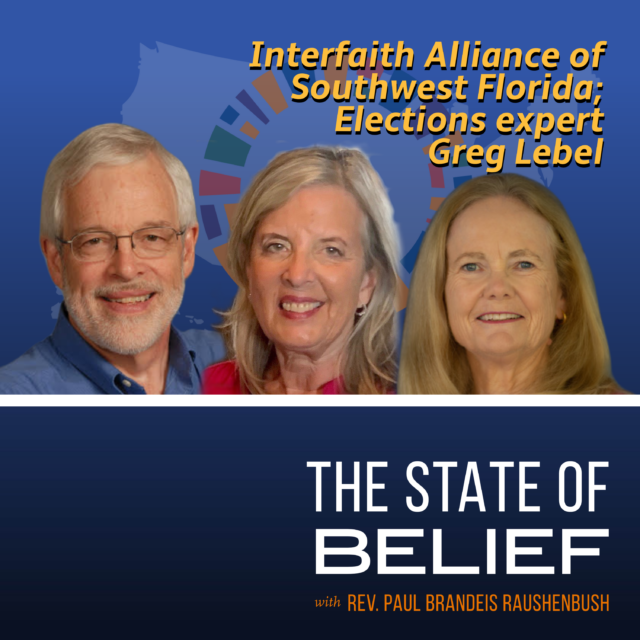The 2024 election campaign is taking shape – and the way different tactics worked or didn’t work to impact the 2023 vote can help us predict what’s coming next November. In particular, understanding how religion shapes politics at the national and local levels is more important now than ever. This week on The State of Belief, Interfaith Alliance’s weekly radio show and podcast, Rev. Paul Brandeis Raushenbush is joined by Greg Lebel, our go-to voice for election analysis, and three members of the steering committee of Interfaith Alliance of Southwest Florida: Rev. Dr. Sharon Harris Ewing, Dr. Lisa Freund and Rev. Tony Fisher, to discuss the challenges in the year ahead.
“I think that voters in this country see abortion as part of a larger agenda in the Republican Party to take away personal freedoms. We see them taking on the issue of books and libraries. We see them taking on the issues of LGBTQ, especially transgender members of our society.” – Greg Lebel is a political management expert and director emeritus of George Washington University’s Native American Political Leadership Program and Semester in Washington Politics Program.
“Ever since I’ve been in Naples, I have wanted to have some kind of interfaith group and network. I’ve been a part of that in other places, not exactly the same, but what keeps me going is the feeling that it is so important that we come together across faith traditions.” – Rev. Dr. Sharon Harris Ewing, a Naples resident since 2016, a United Church of Christ (UCC) minister and a former educational psychologist with Roberts Wesleyan College.
“Treat your fellow person as you would want to be treated yourself: that is the whole Torah. There is nothing else. And that resonates with me all the time.” – Dr. Lisa Freund, who serves on the Jewish Community Relations Council and has a doctorate in special education and literacy.
“What gives me hope is when I stand back at the end of some of our events and watch what’s going on in the room after the event, and the people who are continuing to have conversations, people of different backgrounds and different colors and just making connections – and all of a sudden feeling like there’s people they can talk to and people that they can work with.” – Rev. Tony Fisher, a Unitarian Universalist minister who has served for over ten years at the Unitarian Universalist Congregation of Greater Naples.

